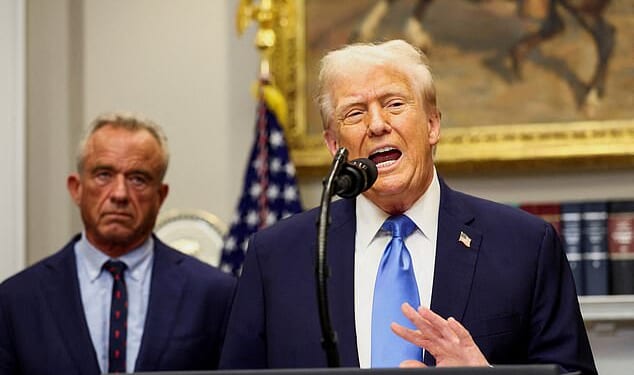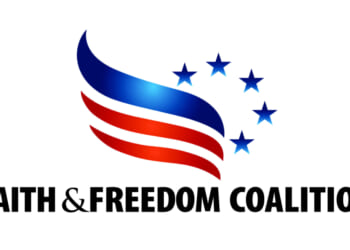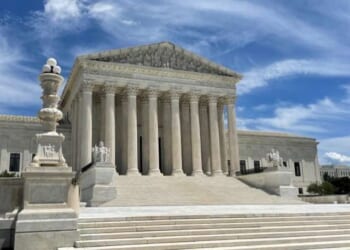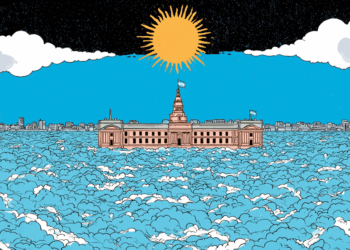A long-standing rumor, that the president repeated this week, speculates that cloistered communities like the Amish, who live separately from modern society, are exempt from the national rise in autism diagnoses.
The science disagrees.
Donald Trump and Health and Human Services Secretary Robert F Kennedy, Jr perpetuated the rumor in a Monday press briefing in which they blamed Tylenol use in pregnancy for the development of autism in childhood.
Trump said: ‘And by the way, I think I can say that there are certain groups of people that don’t take vaccines and don’t take any pills, that have no autism.
‘See, Bobby wants to be very careful with what he says, and he should, but I’m not so careful with what I say, but you have certain groups, the Amish, as an example.’
It is true that Amish communities often rely on home remedies and forgo many standard childhood vaccines. Yet, research in Amish communities in Pennsylvania and Ohio has found that autism does occur, albeit at lower documented rates than in the general US population.
The reason for this disparity is unclear and may not support Trump’s assertion. Experts told Daily Mail it could be a matter of under-diagnosis, as Amish cultural and religious beliefs may hinder the formal recognition of autism spectrum disorder (ASD). Some autistic traits might be attributed to personality differences rather than a developmental condition.
This stands in contrast to the national trend, where about one in 31 American children is diagnosed with autism, a rate that has risen significantly over the past two decades. Child development experts largely attribute this increase to greater awareness, improved screening, and reduced stigma, rather than to vaccines or common medications.
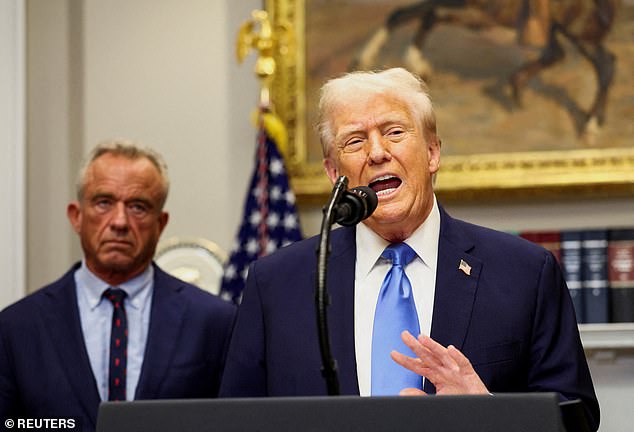
At a press briefing, Donald Trump and Robert F Kennedy, Jr perpetuated the false claim that groups like the Amish avoid autism by shunning vaccines and modern medicine, with Trump specifically citing the community as an example
Experts stress that there is no definitive cause of autism, nor can any community be considered immune from the condition.
The consensus is that autism is a complex neurodevelopmental condition with a strong genetic basis, likely involving a combination of many genes and potential environmental triggers.
Since genetic factors are present in all human populations, autism does occur within Amish communities, though research on the subject has been limited.
Among the most cited was a 2010 study presented at the International Meeting for Autism Research, for which researchers conducted a door-to-door survey in two major Amish areas in the US to establish preliminary prevalence data.
The research team screened nearly 1,900 children and confirmed autism diagnoses in several, calculating a preliminary rate of about 1 in 271 Amish children.
The study also revealed that some standard diagnostic interviews were less effective, suggesting that Amish caregivers might describe behaviors differently.
In a community that values practical skills and character traits, certain behaviors associated with autism may be accepted as individual quirks rather than seen as a developmental disorder requiring a doctor’s diagnosis.
Quatiba David, chief clinical officer at ABA Centers, which runs autism care clinics that serve about 1,000 children, told the Daily Mail: ‘Communities that are geographically and technologically isolated may not have access to the mainstream educational tools that help spot the signs of autism and that community would, therefore, be less inclined to seek out a diagnosis.’
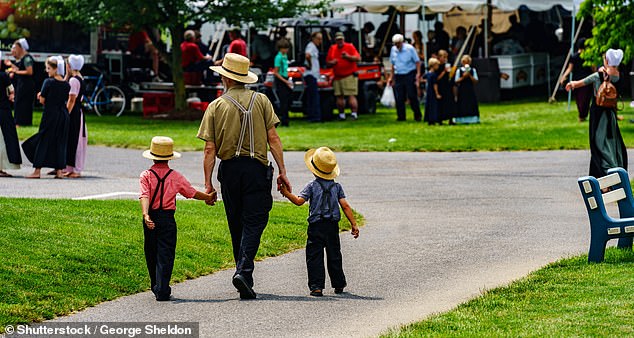
Screening nearly 1,900 Amish children, researchers confirmed autism cases, calculating a rate of 1 in 271 and proving the disorder is present in the community (stock)
In his remarks, Trump repeatedly used the Amish community as a key piece of evidence to support his central thesis that the modern epidemic of autism has an ‘artificial’ cause, specifically, vaccines and medications, such as acetaminophen (Tylenol).
Later, when a reporter mentioned an Amish man who seemed unaware of conditions like ADHD or autism, Trump reinforced his point: ‘It doesn’t exist with the Amish community, and they don’t take all of this junk. It doesn’t exist.’
Kory Andreas, a licensed clinical social worker and autism educator in Maryland, told Daily Mail that a general lack of education or awareness of ASD keeps diagnoses low.
She said: ‘Because it is highly unlikely that Amish children are receiving a neuro-psychological assessement, or seeing a therapist who specializes in neurodivergence, it is almost certain that no one is looking for the traits that would be more commonly recognized in children who attend public school, see pediatricians who are appropriately trained in neurodivergence, and have access to other more diverse children in their wider community.’
The common belief among the Amish is that God does the healing. Amish communities generally prefer to remedy an ailment by seeking counsel within the family and the broader church community.
Some suggestions are considered folk medicine and include practices such as faith healing, herbal treatments and other non-traditional medical remedies.
A visit to a mainstream doctor, dentist or specialist is generally considered only after these community-based options have been exhausted or if the condition is severe, such as a fracture or cancer.
The Amish lifestyle, characterized by a diet of home-grown foods, physically demanding labor, fewer environmental exposure to chemicals and limited exposure to mass media and technology, reduces the prevalence of many modern health issues that are believed to be linked to ASD, such as gestational diabetes and pregnancies in older women, maternal stress, air pollution and pesticides.
The myth that Amish communities do not see diagnoses of autism is often rooted in anti-vaccine sentiment.
Despite extensive research spanning decades, scientists have found no credible evidence connecting vaccines to autism. The single study that proposed a connection was officially retracted by The Lancet, the medical journal that published it, due to its discredited findings and unethical practices.
And while the Amish typically have significantly lower immunization rates than the general public, many Amish children receive at least some vaccinations.
In Monday’s press conference, the Trump administration targeted Tylenol as a culprit for rising autism rates, declaring: ‘Don’t take Tylenol. Don’t take it. Fight like hell not to take it.’
Scientists have investigated a possible connection between acetaminophen use and autism for years, but the body of evidence so far is inconsistent and has not reached a definitive conclusion.
Andreas said: ‘The “Tylenol-free” life doesn’t prevent autism any more than my store-bought butter causes mine.
‘As an autistic adult, and professional therapist, diagnostician, speaker and writer in the area of high masking, late diagnosed Autism, I can speak with authority when I tell you that Autism is most commonly found to be increasing in places where people have access to education, the means for a proper assessment, and social media.’
Most experts believe that the cost of foregoing Tylenol during pregnancy, specifically the effects that fevers have on ADHD, language disorder and motor disorder risks, far outweighs any purported risk of taking the over-the-counter pain reliever.

